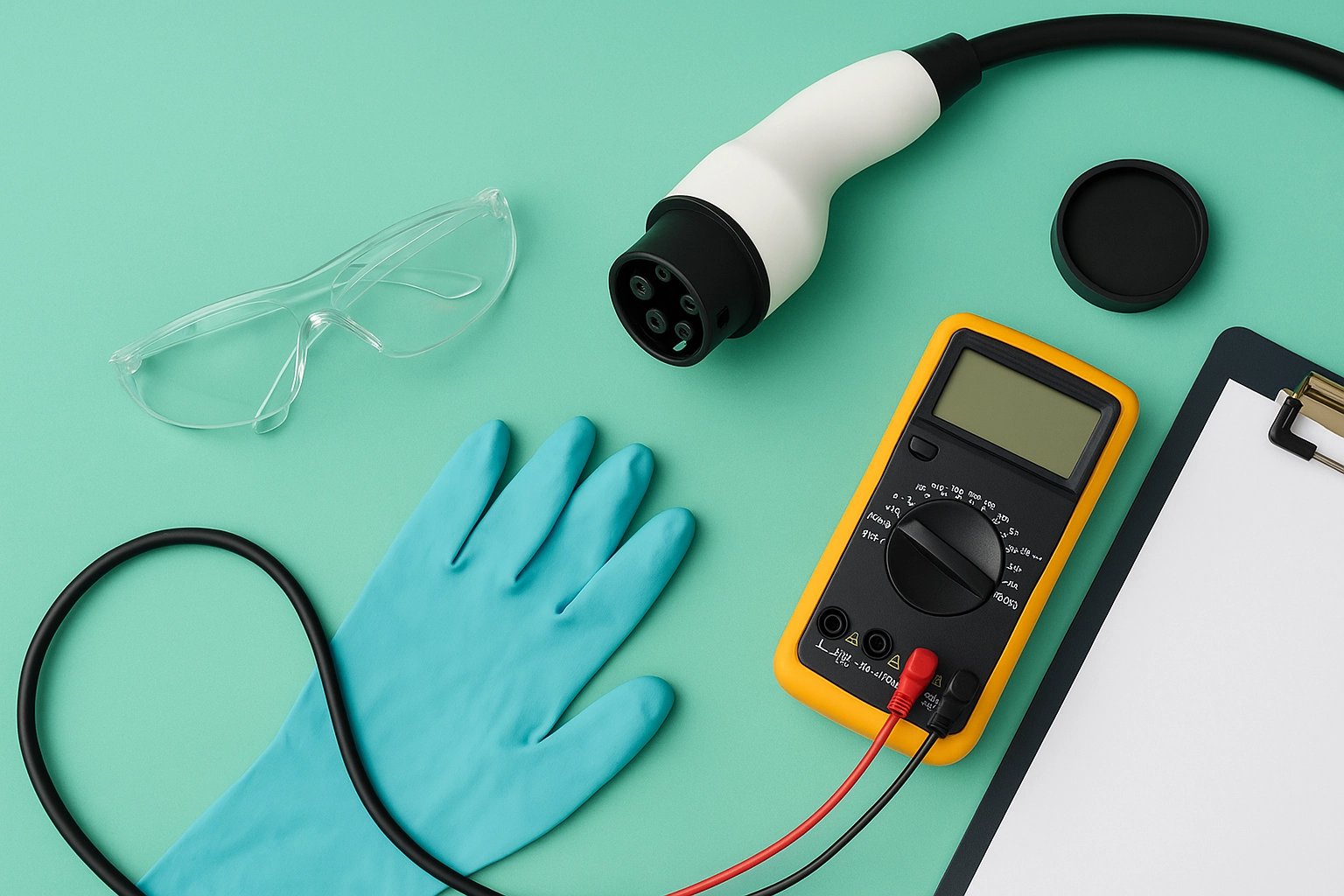UL 61851 Charging Cable Assembly Safety Test
The UL 61851 safety test is a crucial step in ensuring the integrity, reliability, and safety of electric vehicle (EV) charging cable assemblies. This standard sets out the requirements for testing to ensure that these cables can withstand various stressors without compromising their functionality or safety.
UL 61851 covers several key aspects including insulation resistance, dielectric strength, voltage endurance, and mechanical tests such as tensile strength and flex life. The test is designed to simulate real-world conditions that the charging cable assembly might encounter during use, ensuring it can handle these stresses safely.
Insulation resistance measures the ability of the cable’s insulation material to resist electrical current flow. This ensures that the risk of electric shock or fire due to current leakage is minimized. Dielectric strength tests determine if the dielectric materials used in the cable assembly can withstand high voltage without breaking down, which is critical for preventing short circuits and other electrical failures.
Voltage endurance tests evaluate how well a cable assembly performs under alternating voltages to ensure it remains stable during use. Mechanical tests assess the durability of the cable through bending, twisting, and stretching simulations, ensuring that the cable can withstand everyday wear and tear without failing.
The process involves rigorous testing procedures tailored to the specific requirements outlined in UL 61851. The testing begins with a visual inspection for any obvious defects or damage, followed by electrical tests to check insulation resistance and dielectric strength. Mechanical tests are conducted next to ensure the cable can withstand physical stress.
Upon completion of these tests, detailed reports are generated, highlighting all findings and ensuring compliance with the specified standards. These reports serve as a critical tool for quality managers, R&D engineers, and procurement officers in maintaining high product quality and safety standards.
Applied Standards
| Standard | Description |
|---|---|
| UL 61851 | This standard establishes the requirements for safety testing of charging cable assemblies used in electric vehicle charging systems. |
| IEC 62196-3:2014 | International standard that complements UL 61851 by providing additional technical requirements and test procedures for EV charging system safety. |
Environmental and Sustainability Contributions
- Promotes the use of renewable energy sources by ensuring safe and reliable EV charging systems.
- Reduces the risk of electrical hazards, contributing to a safer environment for users and technicians.
- Encourages the development of sustainable technologies that align with global environmental goals.
- Supports the growth of electric vehicle adoption by ensuring high-quality charging infrastructure.
- Fosters a culture of safety and compliance, which is essential for long-term sustainability.
Why It Matters
The importance of the UL 61851 test cannot be overstated. Proper testing ensures that EV charging cable assemblies are capable of withstanding the rigorous demands placed on them by daily use. By adhering to these stringent standards, manufacturers can guarantee the longevity and safety of their products.
Compliance with UL 61851 is not just a regulatory requirement; it’s a commitment to excellence in product design and manufacturing. This ensures that charging cable assemblies are robust enough to handle high voltage and current without compromising on safety or performance. The test also helps identify any potential weaknesses early, allowing for timely corrections before the product reaches the market.
Moreover, adherence to these standards can significantly reduce the risk of accidents, fires, and other hazards associated with electrical equipment. This contributes not only to individual user safety but also to broader public safety by promoting the reliability of EV charging infrastructure.





